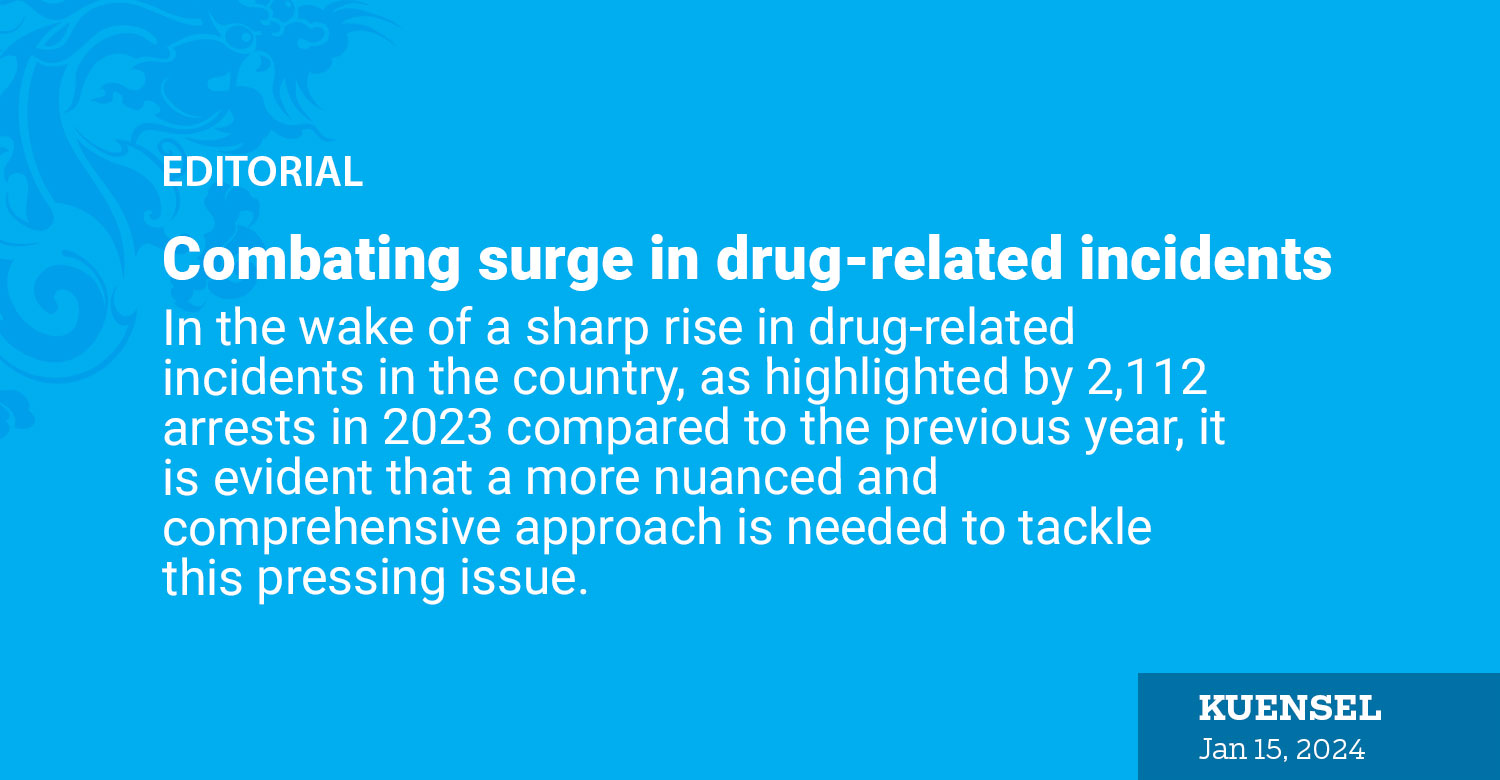In the wake of a sharp rise in drug-related incidents in the country, as highlighted by 2,112 arrests in 2023 compared to the previous year, it is evident that a more nuanced and comprehensive approach is needed to tackle this pressing issue. While the increased vigilance and the establishment of an integrated check post (ICP) along the highway have contributed to the surge in arrests, it is crucial to explore practical measures that go beyond law enforcement to address the root causes and offer sustainable solutions.
A more focused emphasis on preventive measures is imperative. Instead of solely focusing on apprehension and punishment, redirecting resources towards education and awareness campaigns can play a pivotal role. Educational programmes should target schools, community centers, and online platforms, providing information on the dangers of substance abuse and offering support for those at risk. Collaborating with non-profit organisations specialising in addiction prevention can amplify the impact of these initiatives.
Addressing the socioeconomic factors that contribute to drug abuse is essential. Unemployment, poverty, and lack of opportunities often drive individuals towards substance abuse as a coping mechanism. Implementing vocational training programmes, job placement services, and community development projects can create a positive impact. By providing viable alternatives, especially for the youth, we can diminish the appeal of engaging in illicit activities.
Investing in rehabilitation and treatment facilities is paramount. Rather than merely punishing offenders, a rehabilitation-centered approach focuses on the recovery and reintegration of individuals into society. Establishing rehabilitation centers equipped with trained professionals, counselling services, and support groups can facilitate a path to recovery. It is essential that we view those arrested not solely as criminals but also, more importantly, as individuals in need of assistance and understanding.
Community involvement is crucial in fostering a supportive environment. Establishing neighbourhood watch programmes and community policing initiatives can create a sense of collective responsibility. By encouraging residents to actively report suspicious activities and promoting community engagement, we can create a more resilient front against drug-related crimes.
In addition to these measures, enhancing mental health services is vital. Substance abuse often stems from underlying mental health issues, and providing accessible mental health resources can be a proactive step. By reducing the stigma associated with seeking help for mental health concerns, we can create an environment where individuals are more likely to address their problems before turning to drugs.
Given the global nature of the drug trade, Bhutan must work closely with neighbouring countries and international organisations to strengthen border control measures and intelligence sharing. A coordinated effort will make it harder for drug traffickers to operate, reducing the inflow of illicit substances into the country.
Addressing the surge in drug-related incidents requires a multifaceted approach that goes beyond traditional law enforcement measures. By investing in prevention, rehabilitation, community engagement, mental health services, and international collaboration, we can build a comprehensive strategy to combat drug abuse and create a safer, more resilient society.


